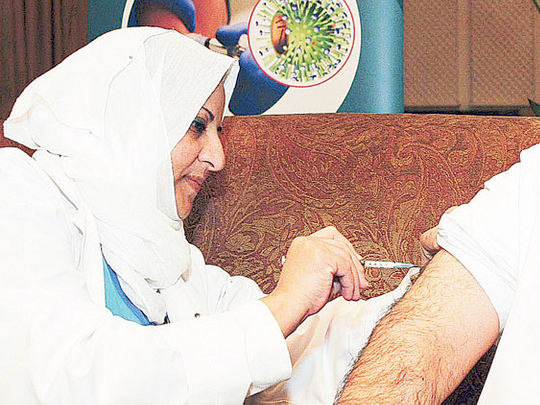
Dubai: The threat of Ebola, Mers Coronavirus and other infectious diseases has cast a long shadow over Haj pilgrimage.
Every year, Saudi Arabia’s Ministry of Health takes precautions to issue guidelines and advisories on vaccinations as hosting one of the largest congregations on earth is fraught with potential health risks.
As of September 10, 727 cases of Mers Co-V had been confirmed by the World Health Organisation, with the Kingdom of Saudi Arabia reporting the highest number of cases. According to the World Health Organisation, the overall risk of visitors contracting Mers Co-V appears to be low. But the authorities are not taking any chances and have put protocols in place.
Saudi Arabia’s Ministry of Health has reported that it will not issue Umrah and Haj visas to pilgrims from Sierra Leone, Guinea and Liberia, which have been hard hit by the Ebola outbreak.
International SOS, the medical and travel security risk specialists, are also offering medical guidance to members ahead of this year’s Haj, especially about taking extra precautions, following advice from global health authorities on Middle East respiratory syndrome coronavirus (Mers Co-V) and Ebola.
Dr Essam Badaoui, Medical Director at International SOS, said: “Haj is a hugely important event and the advice from the global health authorities is that people deemed healthy and able should go ahead with their plans as in previous years. The number of reported cases of Mers Co-V has fallen in recent weeks, but our advice to members and the general public is to remain vigilant and take extra precautions to reduce the chances of contracting the Mers Co-V virus or other infectious diseases.”












